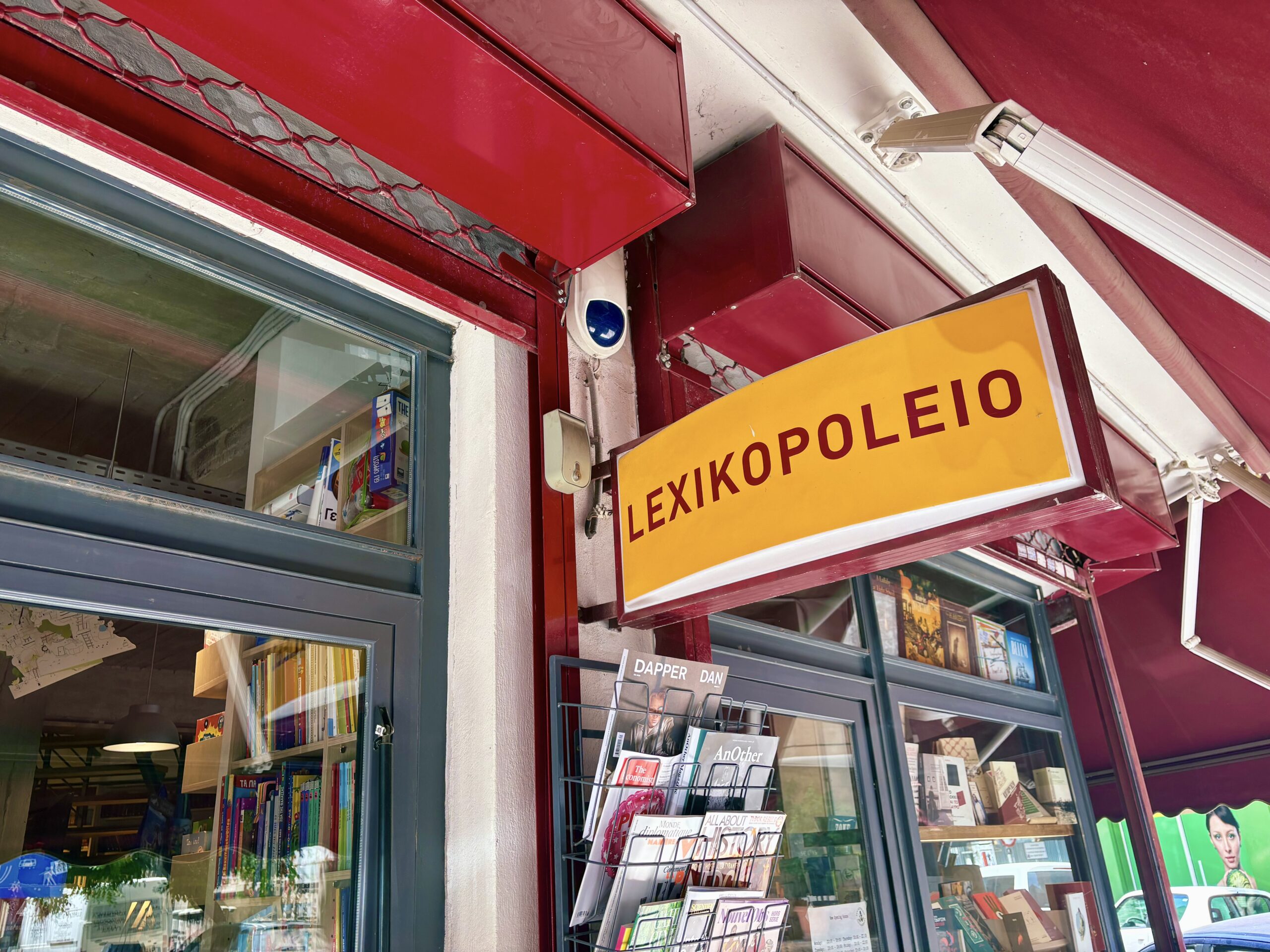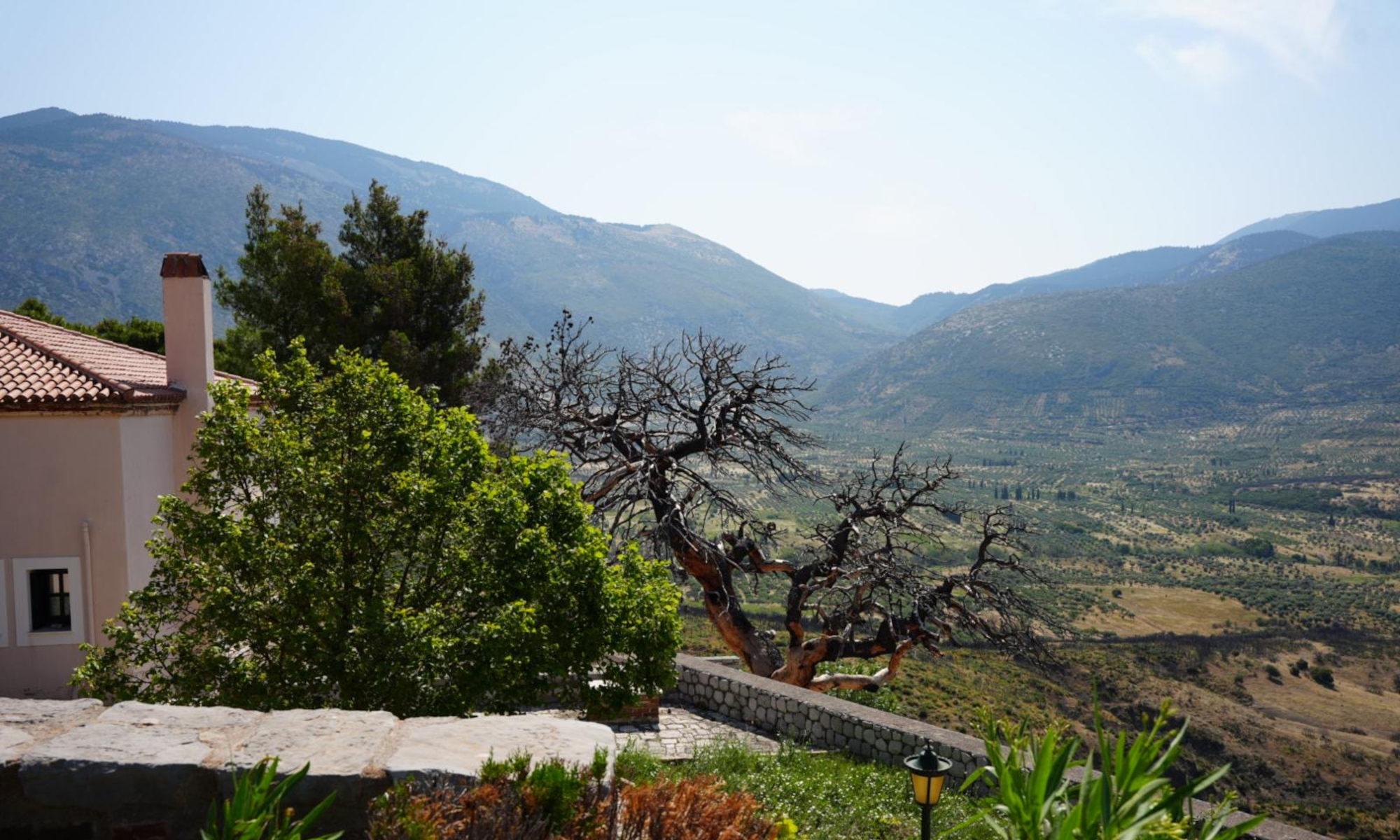At an English-language book club in the Athens neighborhood of Pangrati, members try to separate reality from fiction.

By Vivien Wong
There’s the perfect setup for a bad joke: “Three American college students and fifteen-odd expats walk into a bar…” Except the bartender is a Greek bookseller, and the bar—a full liquor shelf in a room half-closet, half-cavern—is concealed behind a set of sliding bookcases.
This was the last meeting of the English-language book club at Lexikopoleio, a locally-owned international bookshop in Pangrati, though Diamantis Diamantidis, the events coordinator and bartender for the evening, told me that members have been petitioning him to extend meetings one more month, into July.
Aside from the three of us, I counted an American sociology professor, an Argentine actor, and a Dutch digital nomad among the readers who’d made it to the Wednesday night gathering. They’ve got a level of dedication that Diamantidis hasn’t seen in the shop’s Greek- and French-language book clubs, and he believes it has something to do with the transience of their life in Athens. “These people came five years ago, or three years ago,” Diamantidis told me. “They’re going to go in two years. It’s not very fixed. But they’ve been loyal because they know that this is an anchor for them.”
New York Times journalist Judith Newman once described a polarizing divide between book club attendees who prefer to analyze the themes and content of a book and those for whom the reading serves as an entry point for personal divulgences. Serious members agree that the “biggest sin in book clubs,” she writes, “involves the This-Book-Is-About-Me! Crowd—those who examine the author’s intentions entirely through the prism of their own experience.”
But what if the attendees’ lives are the subject of the book?
Wednesday’s discussion centered around Italian author Vincenzo Latronico’s “Perfection,” translated into English by Sophie Hughes. The novel chronicles a relationship between two expats—digital “creatives”—living in Berlin in the 2010s.
Self-consciousness about the impact of expat professionals on the physical and economic landscape of Athens resurfaced throughout the attendees’ conversation. “What’s the difference between an expat and a refugee?” a dark-haired woman—the digital nomad from Amsterdam—asked. She answered herself: “Someone who comes here voluntarily with money and someone who doesn’t.”
An American professor at the table described herself as one of the “vampires” who have profited by moving to European cities like Berlin and Lisbon when rent and real estate were relatively cheap. “I can have a really nice life that’s very difficult to have for the same amount of money in New York City,” she continued. “It makes me wonder what happens when Athens, all of a sudden, starts to become expensive and inaccessible?”
A Greek man across the table from her interjected, “Ask the Athenians!” Attempts to describe the problem of gentrification carried a different tense for different readers at the table: future tense for an American professor, past tense for Greeks priced out of gentrified neighborhoods like Pangrati.
The physical architecture of the city makes these tenses concrete. The part of Pangrati which surrounds Lexikopoleio was once called Vatrachonisi—meaning “frog island”—a nod to amphibians native to the bed of the Ilissos River. Urban expansion, which dates back to the 19th century but escalated in the 1950s, has all but buried the marshland that marked the site of the ancient riverbed.
On the corner of Proskopon Square, the Athens café chain Petite Fleur, which features vinyls hanging from the ceiling and stools upholstered with black-and-white prints of Roy Haynes and Billie Holiday, rounds off one travel blog’s description of the Vatrachonisi area as “more like Paris than Athens.”
Two blocks from Lexikopoleio, the side of an apartment has been spray-painted, in large green letters, “REFUGEES WELCOME / TOURISTS GO HOME.” Someone’s tried to white out the graffiti by scratching lines into the beige coat of the building.
At length, the attendees discussed the helplessness of the expat couple in “Perfection.” Why didn’t they ever learn German? A debate ensued: perhaps technology was to blame, perhaps the characters’ parochialism.
“They didn’t seem to be able to do things differently, did they?” one woman said. A joke about their own inability to speak Greek drew laughter from around the table. ♦
